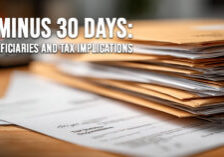Drowsy Driving

Driving drowsy results in roughly 100,000 crashes per year, also leading to over 1,500 deaths. Americans average at 6.8 hours of sleep a night, which is over an hour less than the recommended amount of sleep nightly (eight hours). Basically, this means that there are entirely too many drowsy drivers on our roads every single day. Drowsiness creeps up on us slowly, like a warm blanket. There are a few signs to recognize when you are too tired to be driving. If you are continuously yawning or blinking, missing your exit, or even drifting from your lane, you are probably too tired to be driving. Try to turn up the radio or slap yourself in the face to keep yourself awake (I’m kidding!!) If you try these things and you’re still too tired, it’s recommended that you pull over and rest. You could save your own life or someone else’s life.
Getting more sleep is the best way to make sure you’re not driving drowsy. Here’s a few key steps to getting a longer, deeper sleep.
- Exercise early in the day. Exercising earlier in the day will promote easy relaxation and sleep at night. However, if you exercise closer to bedtime, your mind will be more alert, making it harder for you to fall asleep.
- Cut back on caffeine. Drinking caffeine to keep you awake during the day will also keep you awake at night. Finish your last caffeinated beverage early on so you may fall asleep when the time comes.
- Keep your internal clock set. Your body will keep track of when it’s time to rest or be awake based on light. Wake with the rising sun and fall asleep when it’s dark out, each day. This will put you in sync with your internal clock and promote restful sleep.
- Keep your room cozy. Create a sense of “sleeping on a cloud” with your pillows and blankets. Make sure your room is quiet, dark, and at a comfortable temperature to ensure your ability to fall asleep quickly.
- Relax before bed. Take some time to yourself to wind down. Sit on the couch with a good book or a hot cup of tea, while you listen to classical music to calm your heart rate and ease your breathing. Take a hot bath. Once you’re truly relaxed, then you attempt to sleep.
- Try a natural sleep-aid. Melatonin is produced by the pineal gland in your brain; it’s a hormone that makes you sleepy. Synthetic melatonin comes in pill-form and helps you fall asleep. Another natural sleep aid, known as Valerian Root, is known to not only help you fall asleep more quickly, but also greatly improves your quality of sleep.
- Take deep breaths. Focus on each breath, and this will ease you into a deep relaxation. This will help quiet your mind. You’ll be asleep before you know it.
 By: KayLynn
By: KayLynn
Do you have questions about your insurance? Find an insurance agent near you with our Agent Finder
Search All Blogs
Search All Blogs
Read More Insurance Blogs
A Presidential Legacy: Using Life Insurance to Fund Your Charitable Vision
What will your legacy be? Learn how to use life insurance to make a significant charitable impact this Presidents’ Day without depleting your current savings.
A Gift Beyond Roses: Why Life Insurance is the Ultimate Expression of Valentine’s Day Love
Roses fade, but financial security lasts. Discover why life insurance is the most selfless Valentine’s Day gift you can give your family this year.
T-Minus 30 Days: The Late January Review of Beneficiaries and Tax Implications
Tax forms are here. Review your life insurance beneficiaries one last time, and understand the tax status of policy payouts vs. accrued interest.
The Mid-January Check-Up: Why Scheduling Your Life Insurance Exam Now Locks in the Best Rate
Don’t delay the exam! Schedule your Life Insurance paramedical exam in mid-January to lock in your best rate and complete your application process quickly.
Tax Season Lifeline: Why January is the Time to Secure Estate Liquidity with Life Insurance
Tax season is here. Use Life Insurance to create tax-free liquidity for your estate and protect your family business from forced asset sales.
The Healthy Policy: Leveraging Your January Wellness Resolutions for Life Insurance Savings
Did you resolve to get healthier? Your improved fitness can translate into lower life insurance premiums in the new year.
The Family Legacy: Why December is the Time to Name a Trust as Your Life Insurance Beneficiary
Protect your payout. Discover the benefits of naming a Trust as the beneficiary of your life insurance to control distributions and minimize probate delays.
The Most Sustainable Gift: Life Insurance and the Value of Income Continuation Planning
Life insurance ensures the Christmas cheer continues. Practical tips on using income continuation math to calculate the right term policy size for your family.
The Ultimate December Gift: Why Life Insurance is the Most Important Present You’ll Ever Give
Forget the gadgets; life insurance is the real gift of security. A timely look at protecting your family’s future during the season of giving.
The Modern Parent’s Dilemma: Life Insurance for a Generation of Savers and Investors
Today’s parents have new financial goals. Here’s how life insurance can be a flexible tool for a modern family in 2026.









